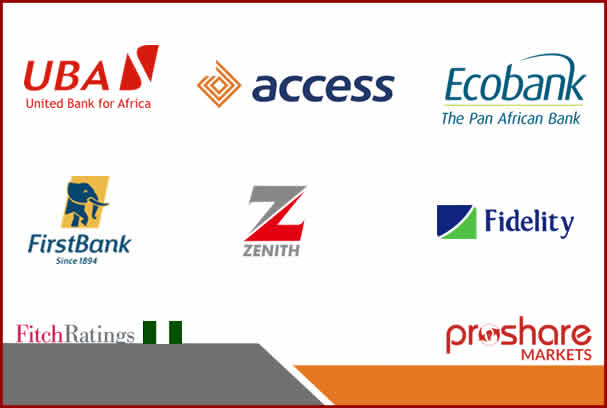Blockchain technology is a type of distributed ledger that is gaining widespread attention and its use is rapidly expanding. The global blockchain market was valued at $708 million in 2017 and is projected to reach $60.7 billion by 2024. In fact, 90% of banks and financial institutions in the United States and Europe have started exploring blockchain technology. JP Morgan has developed a blockchain platform called Quorum that is being used to securely and efficiently process financial transactions. Similarly, the Monetary Authority of Singapore and the Bank of Canada have been testing blockchain technology for interbank payments and securities settlement.
Blockchain technology can be defined as an incorruptible digital ledger of economic transactions that can be programmed to record financial transactions and virtually everything of value.
Blockchain technology can be applied to a variety of industries, which include banking, agriculture, healthcare, and cyber security. In the agricultural sector, it can be used to increase food security, increase traceability, decrease fraud, reduce errors, and do away with paper-based documentation, which can boost productivity and cut costs. The use of blockchain in the healthcare sector can help minimize errors, improve system performance, and build a secure, decentralized electronic medical records system. Internet of Things (IoT) and other linked devices, as well as communication systems and other sectors of digital infrastructure, can all be secured using blockchain-based solutions. Blockchain can be used to improve the security and efficiency of financial transactions, reduce costs, and increase transparency in the banking sector.
The Nigerian banking sector has recorded rising cases of fraud in the past few years. The banks use a variety of security practices to protect their networks and infrastructure. This includes network segmentation, virtual private networks, firewalls, advanced threat protection, security information and event management, biometric authentication, two-factor authentication, and security compliance.
However, with these security practices in place, Nigerian banks still recorded fraud and forgery cases totaling N120.79 billion in 2020.7 Additionally, the Nigeria Inter-Bank Settlement System Plc revealed that fraud attempts via mobile channels climbed by 330% year on year between 2019 and 2020, while those via web and POS channels increased by 173% and 215%, respectively.8 In 2021, the total number of recorded Nigerian fraud cases was 17,697.
The security practices of Nigerian banks are threatened by several problems that make it difficult for them to safeguard their networks, systems, and client information from cyberattacks. These challenges include:
Inadequate security infrastructure: several Nigerian banks have not fully deployed modern security infrastructure to protect against cyber-attacks.
Human error: despite training and awareness programs, employees may fall victim to phishing scams, mistakenly share sensitive information, or fail to follow security protocols.
Lack of security compliance: some banks have not completely implemented industry standards like ISO 27001 or complied with all regulatory requirements for cyber security.
Insufficient investment: banks are not investing sufficiently to bolster their information security posture; this can include a lack of investment in technology, employees, and training.
Lack of incident response: many Nigerian banks are not adequately prepared to manage security issues and do not have incident response strategies, which makes it challenging to react to a security breach swiftly and effectively.
Cyber-attack detection and response: Nigerian banks are facing challenges in detecting, responding to, and mitigating cyber-attacks. This is partly due to the sophistication of the attack methods and the lack of necessary technical expertise to detect, respond, and mitigate the cyber-attack.
In several ways, blockchain technology can address the security issues Nigeria's banking sector is now experiencing. These include
Increased transparency: blockchain provides an open and transparent system in which all transactions are recorded in real-time, offering a tamper-proof record of all transactions that can be audited at any moment, increasing the system's transparency. That being said, it also has the potential to increase anonymity, which can make it more difficult to track and trace financial transactions. This is why many blockchain platforms have adopted the Know Your Customer and Anti[1]Money Laundering compliance standards, which are aimed at identifying and verifying the identities of users and detecting and reporting suspicious transactions. This can enhance regulatory adherence and lower the likelihood of fraudulent activity.
Improved Security: The technology secures transactions using powerful cryptography, and because it is decentralized, it eliminates the need for intermediaries, making it more secure than traditional financial systems. Decentralization also makes it more challenging for hackers to successfully attack the entire network; even if they manage to compromise one node, this would not compromise the overall network.
Smart contracts: blockchain-based smart contracts can automate various procedures, minimize error rates, and do away with paper[1]based paperwork, which boosts productivity and cuts expenses. Additionally, smart contracts would do away with the necessity for intermediaries in many transactions, lowering the possibility of human error and thus boosting security.
Compliance: blockchain technology can help with regulatory compliance by providing a tamper-proof, real[1]time record of transactions and making transactions easier to track and verify.
Nigeria can draw valuable lessons from other countries that have implemented blockchain technology in the financial sector. For example, the United Arab Emirates has launched a blockchain-based financial system, allowing companies to use one platform to access their accounts, manage transactions, and exchange funds. India has also experimented with blockchain technology, launching a pilot program to use the technology for bank settlements and other financial transactions. Overall, Nigeria stands to benefit from the implementation of blockchain technology in the financial sector. By leveraging lessons learned from other countries, Nigeria can ensure a successful and secure implementation of the technology.
 Lagos, NG • GMT +1
Lagos, NG • GMT +1











 352 views
352 views














 Sponsored Ad
Sponsored Ad
 Advertise with Us
Advertise with Us









